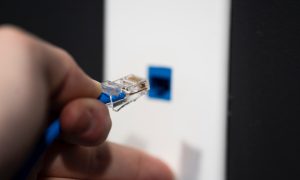In Jacksonville, countless businesses depend on reliable computer networks to ensure seamless communication, efficient data handling, and uninterrupted operations. Unfortunately, network issues remain a common challenge across various industries, from retail and finance to healthcare and education. Understanding the root causes of these disruptions and knowing how to address them effectively is vital for minimizing downtime and maintaining productivity.
Common Causes of Network Issues in Jacksonville
Network problems can arise from a variety of circumstances. Here are some of the most frequent causes observed in Jacksonville’s business environment:
- Outdated Equipment: Many businesses continue to rely on legacy hardware that no longer meets modern performance demands, resulting in lagging speeds and potential failures.
- Poor Network Design: Inadequately designed infrastructure can cause dead zones, data bottlenecks, and limited scalability for growing companies.
- ISP Issues: Internet outages and slow bandwidth from local service providers can significantly impact network performance, especially during peak business hours.
- Security Breaches: Jacksonville has seen a rise in cyber threats targeting small and medium businesses. Malware, ransomware, and unauthorized access often lead to unstable networks.
- Configuration Errors: Incorrect firewall rules, incorrect IP configurations, and DHCP problems can all result in network issues that are hard to diagnose.
[ai-img]office network diagram troubleshooting[/ai-img]
Solutions to Resolve Computer Network Issues
Whether the cause lies in hardware or software, the good news is that there are effective solutions to prevent and remedy most network problems. Here are some key recommendations:
1. Upgrade Equipment Regularly
Investing in modern routers, switches, and servers ensures compatibility with emerging technologies and can significantly boost speed and reliability.
2. Employ Smart Network Design
Consulting with IT professionals to properly design the network layout can eliminate coverage gaps and ensure smooth device connectivity. Considerations should include wired vs. wireless setup, device load, and floor plan coverage.
3. Monitor Network Activity
Using network monitoring tools helps in tracking traffic, pinpointing congestion, and identifying unauthorized devices. Real-time alerts facilitate quicker issue resolution.
4. Choose a Reliable Internet Provider
Selecting a local Internet Service Provider (ISP) with a reputation for robust customer support and consistent uptime can solve many underlying performance issues.
5. Enhance Security Protocols
Implementing firewalls, intrusion detection systems, and regular security audits can reduce the likelihood of breaches. Additionally, training employees on cybersecurity best practices is a cost-effective way to minimize human error.
[ai-img]network security firewall monitoring computer[/ai-img]
6. Regular Maintenance and Updates
Running regular maintenance checks, installing firmware updates, and backing up configurations ensure that small issues don’t snowball into larger problems. Having a trusted IT maintenance plan is particularly important for businesses scaling operations.
Why Jacksonville-Specific Solutions Matter
Regional factors such as weather, infrastructure, and local regulations can play a significant role in network reliability. Jacksonville, for instance, often experiences heavy rainfall and humidity, which can damage outdated networking hardware. Additionally, the city’s rapid urban development places strain on both wireless and broadband networks, which underlines the importance of adapting solutions that are tailored to local conditions.
Moreover, small companies around Jacksonville often lack in-house IT staff, which is why hiring managed IT services or outsourcing network management proves to be an efficient and cost-effective solution.
Conclusion
Solving computer network issues in Jacksonville requires a proactive and strategic approach. By addressing the root causes like outdated equipment, weak infrastructure, and cyber threats, and by employing best-practice solutions, businesses can maintain a stable and secure network environment. With local experts and resources available, organizations have the tools needed to tackle connectivity challenges head-on and ensure uninterrupted operations.
Frequently Asked Questions
- Q: How often should network hardware be replaced?
A: Most network hardware should be upgraded every 3–5 years, depending on usage and technological advancements. - Q: What are signs of a failing network?
A: Slow internet speeds, frequent disconnections, login issues, and unresponsive devices often indicate network troubles. - Q: Can I resolve basic network issues in-house?
A: Yes, minor issues such as restarting routers, checking cables, and updating firmware can often be done by non-technical staff. - Q: Are managed IT services worth the investment?
A: For small and medium-sized businesses in Jacksonville, managed IT services offer cost-effective access to expert support and proactive solutions. - Q: How do I secure my network against cyber threats?
A: Regular updates, strong passwords, firewall implementation, and staff cybersecurity training are essential first steps.












